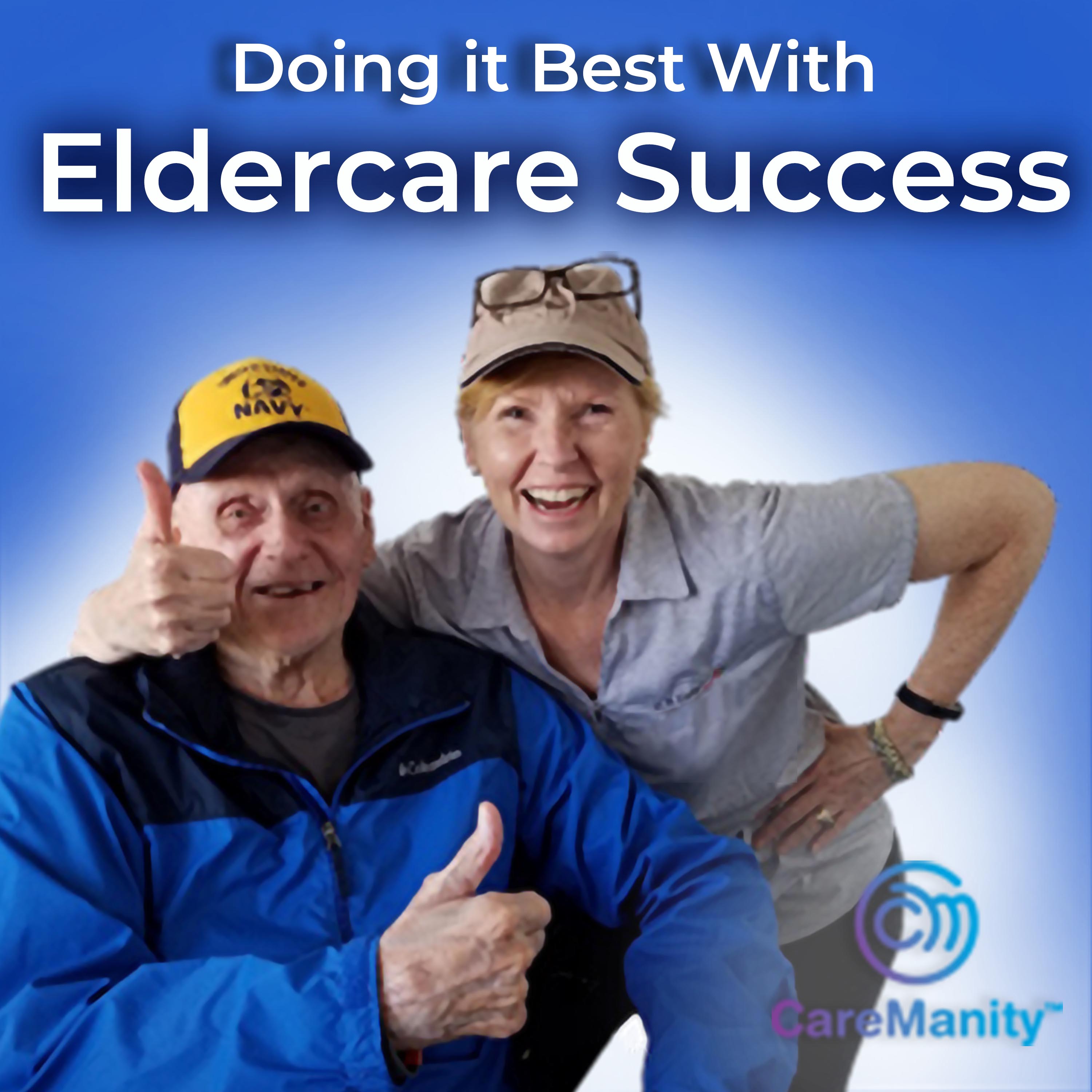Episode 36
How to prepare for a hurricane when a caregiver
How do you prepare for a natural disaster emergency if you’re caring for an older person?
Natural, weather-related, and other disasters happen -- they're often difficult to avoid. Yet, you can prepare, in advance, so that you and your loved ones stay safer. In this episode, I review how you can make sure that your parents are safe in their own home, in a care facility, and even in a hospital, during a weather-related disaster.
First, and foremost, if you’re told to evacuate, listen carefully to what local authorities advise. Evacuate to where they recommend you go based on the needs of the person you’re caring for. It’s important to note that first responders may not be able to get to you, when and after a disaster strikes, especially if conditions would place their own lives in danger, or if roads are blocked.
Below is a list of points to review in each living environment:
In a care facility: Questions to ask and confirm:
- Does the facility have adequate generator backup equipment, and when was it last serviced and tested? If it needed repair, how were the issues addressed? When?
- How many staff members and hands-on aides, and medical staff will be on-site during a weather event?
- What are the facility’s evacuation plans?
Know where the facility is in an evacuation map zone. You can check this on the town, county, or state maps. Each should have an emergency update page during times of natural disaster.
Where will your loved one be evacuated? Know the location yourself, even if you're not physically there with them.
Is there enough support to do this safely for everyone?
Although staff members may be required to work through a storm, many will want to go home to care for their own families. Who can blame them?
Ask if you can volunteer to help if they’re short-staffed.
If evacuated, what medical support will they have on hand at the evacuation location?
- Consider:
Spending the night at the facility with your loved one, in their room.
Sleeping in their room on a couch, chair, or floor if necessary.
Bring extra blankets, pillows, and a sleeping bag, and hunker down for the duration of the storm.
Bringing your own kids along for the adventure if they’re able to stay calm.
Staying if needed, until you are confident that things are back as they were before the emergency.
In Hospitals:
- Ask who are the key people in charge of the floor where your parent is located.
- Ask about their emergency backup system. The floor staff may not know the answer, yet it’s worth asking who does know.
- Book to read: Five Days at Memorial
- Understand that the ability to save a life at an older age will not be the hospital’s primary focus in an emergency. In this situation, it will be up to you to get the help your loved one needs. Be firm, or aware of what will happen next, if care is not provided.
- Stay in your loved one’s hospital room with them during the emergency period. You should be safe there. In addition, they will have you at their side if, and when needed.
At Home: Where your parents or loved one resides.
- Prepare as far in advance as you can. This may sound obvious, yet you’d be surprised by how many wait until the last minute.
- Be there with them if you can. If not, tell your aides to bring their family to mom and dad’s home.
- Get a backup generator and stabilized fuel. Learn how to operate it safely! Test it in advance to see if it works.
- Make sure all outdoor items are brought indoors or securely tied down so they don’t become a danger in a high wind situation.
- Fill tubs with water for flushing, cleaning etc. Add a cap full or two of BLEACH – to standing water in a bathtub or large buckets. This water should only be used for washing and cleaning. NOT for drinking!
- Tape or block windows with cardboard or wood panels.
- Move beds or any furniture where your loved one regularly sits, away from windows.
- Make sure enough drinking water is in the house. At least five or more days of drinking water for everyone if power outages are expected.
- Make sure all prescription medications are filled
Clothing:
- Have enough clean clothes available for everyone.
- Incontinent Supplies: Have enough for one week. Make sure they’re stored in a dry location.
- Bathing: Use, or get bath wipes
- Flashlights and other battery-operated lights
- Gait belt: Make sure you have a way to help with transfers in the dark .
Sleeping:
- If possible, sleep in the same room with your loved ones so they’re less anxious.
- Keep bed rails (we used baby rails as they're softer and more gentle should they be knocked against) to help deter falling accidents.
- Bedside commode, if necessary, again to help with reducing fall accidents. I love this particular model.
Food:
- Have enough meal items in the house that don’t require cooking. Canned items that can be opened with a hand/manual can opener, are also good to have on hand.
- Anything that doesn’t require cooking, blending, etc. You can also get “cookable” MREs.
- Here’s a more healthy MRE option.
Entertainment:
- Have some good books available that you can read with a flashlight, in the evenings.
- Enjoy games you can all do to keep calm. Jinga stacking is fun, or checkers – keep it simple.
- Storytelling: Be creative and make up your own stories that one person starts and the others finish. Ask someone to be the scribe so you have a way to record your storytelling adventures.
Community Emergency Notes:
- Know emergency evacuation procedures
- Know your evacuation routes. You can get this information from your town or county website BEFORE an emergency situation erupts.
- Know where your local EMT and Firehouse stations are located should you need to go there directly for help.
- Learn/refresh your basic first aid skills.
- Sign up for a course through the American Red Cross .
Evacuate if told to do so!
- Don’t wait!!!
- Go to the shelter that’s dedicated to seniors or seniors with pets.
Important documents:
- Have all important medical and legal documents ready to go with you and your loved one, if told to evacuate.
- Have a Go Bag set and ready to go with you. For more information on Go Bags and other emergency support get the BOOK How to Survive 911 Medical Emergencies. Step-by-Step Before, During, After!
- Bring a few bank checks or cash with you. When WIFI is down you may not be able to use credit cards or pay apps.
Most importantly, stay calm and follow directions provided by local emergency authorities!
Host: Nancy May, Author of How to Survive 911 Medical Emergencies, Step-by-Step Before, During, After! is an acknowledged expert in managing the path of step-by-step caring for aging parents, even from over 1200 miles away. For a free, fillable File-of-Life go to www.howtosurvive911.com. Nancy is also the Co-Founder of CareManity LLC, and the private FaceBook group, Eldercare Success.
Disclaimer: The views, perspectives, and opinions expressed in this show are those of the show guests and not directly those of the companies they serve or that of the host or the producer CareManity, LLC. The information discussed should not be considered or used as medical, legal, or financial advice. Please seek the advice of your own personal medical, legal or financial advisors as each person’s situation is different. (c) Copyright 2022 CareManity, LLC all rights reserved.
CareManity is a trademark of CareManity, LLC.
This podcast uses the following third-party services for analysis:
Podtrac - https://analytics.podtrac.com/privacy-policy-gdrp


